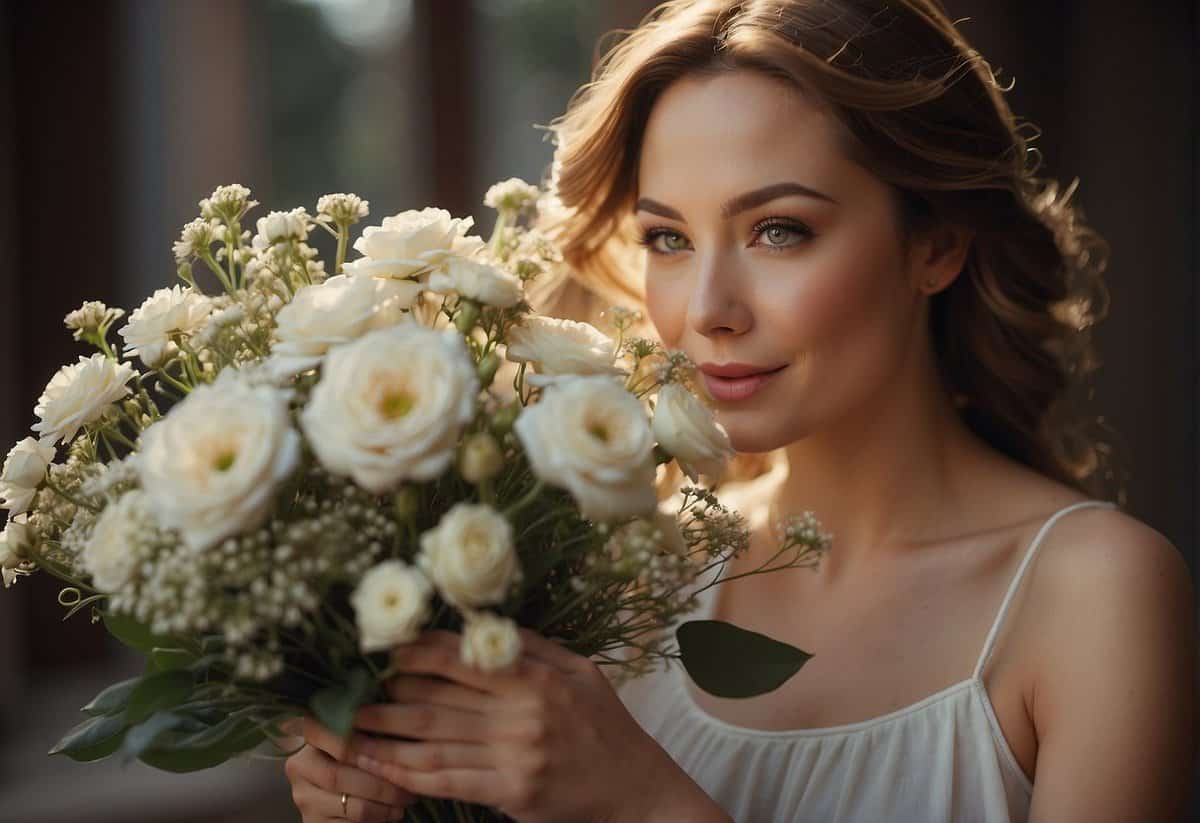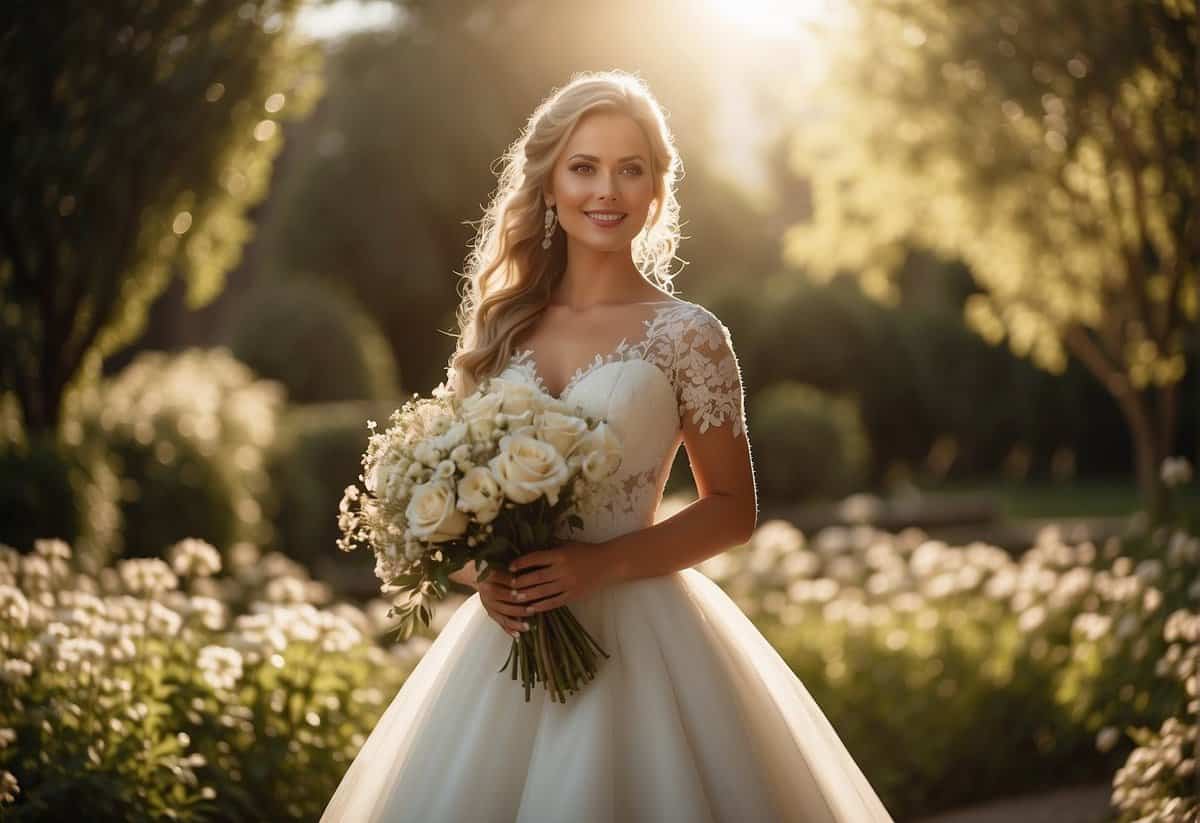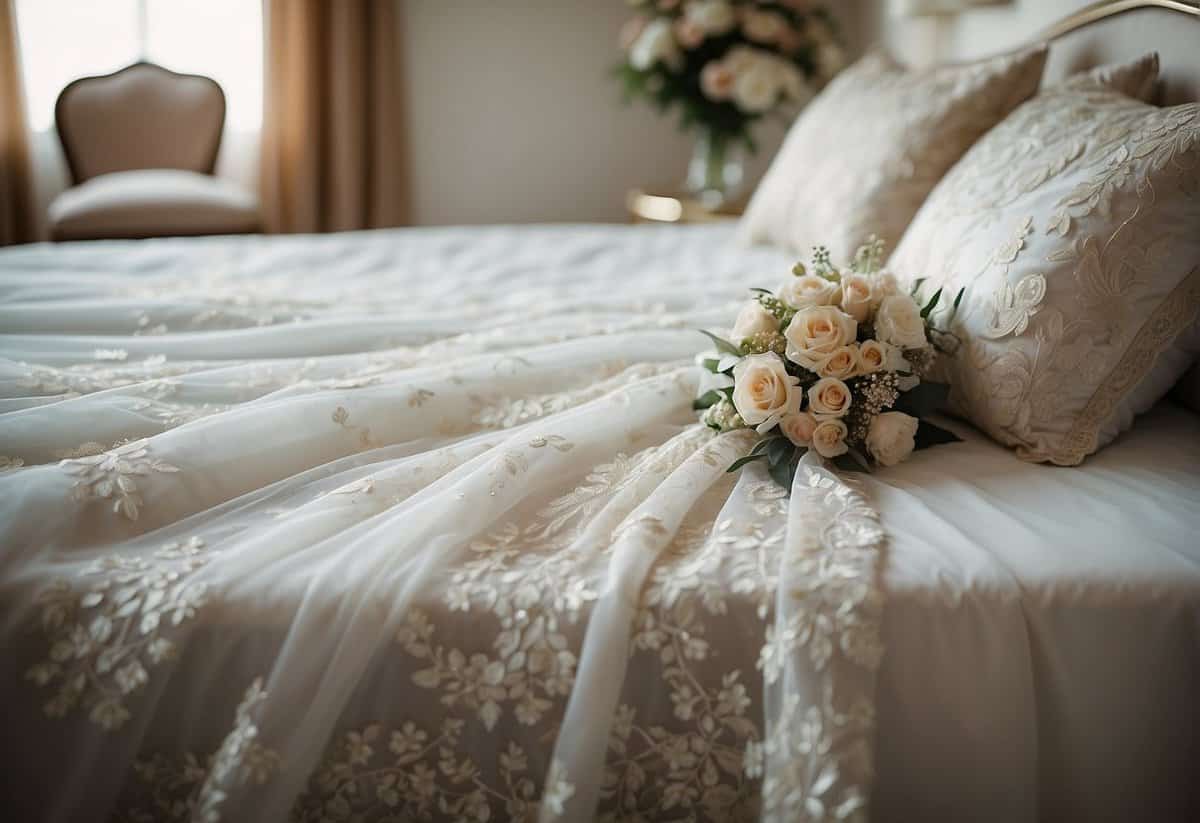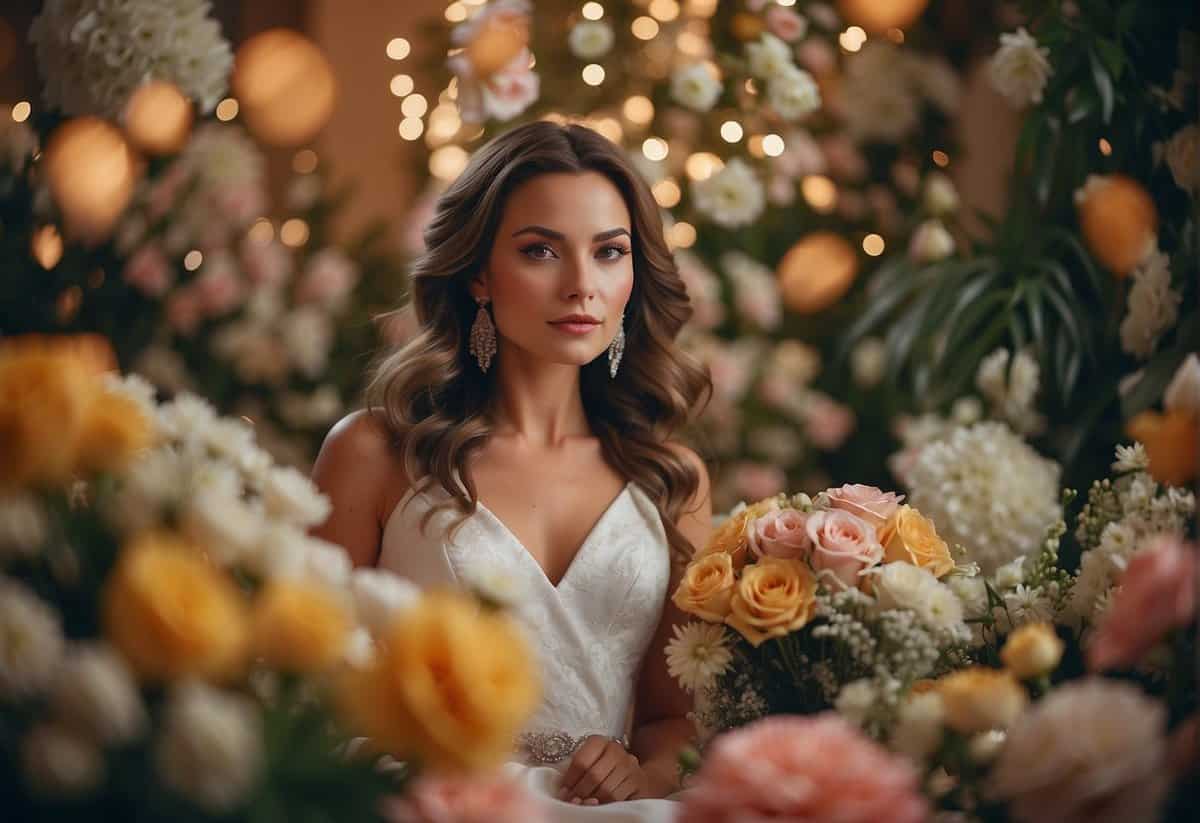What a Wedding Means to a Woman: Significance and Emotions Explored
A wedding can represent one of the most significant milestones in your life, particularly if you identify with the many women for whom this event carries profound personal meaning. It’s often seen as the hallmark of love and commitment, a formal acknowledgement of a partnership that promises to weather life’s challenges together. The ceremony itself, rich with rituals and significance, serves not just as a public demonstration of a bond but as a celebration that aligns with deeply held values and traditions.

Emotionally, your wedding day may resonate as a poignant culmination of romance, encapsulating both the joy and the gravity of choosing to intertwine your life with another’s. Beyond the personal, the day also reflects a canvas for self-expression, where fashion and attire become an extension of your identity and tastes. The planning process, while often complex, allows you to curate an experience that not only honors your vision but creates lasting memories with those you hold dear.
Key Takeaways
- A wedding marks a pivotal event, symbolizing love and lifelong commitment.
- The day is emotionally significant, reflecting the depth of the bride’s relationships.
- Planning allows for personal expression and crafting a memorable celebration.
Rituals and Significance of the Wedding Ceremony

Weddings are a tapestry of rituals and traditions, each weaving a narrative of commitment and cultural heritage. As you step into this chapter, you’ll encounter a beautiful variety of practices that embody the gravity of the marital promises you are about to make.
Exchanging Vows and Making Commitments
The heart of any wedding ceremony lies in the exchanging of vows. These are a deep expression of your intent to uphold the values of love, honor, and respect. In a Protestant wedding, you might find the vows are quite personal, as they can often be written by you and your partner, while in a Catholic or Eastern Orthodox ceremony, the vows could be traditional ones that have been echoed through centuries.
For example, in a Catholic wedding, you may declare to love and honor each other “for better, for worse, for richer, for poorer, in sickness and health, until death do us part.” Similarly, in Muslim marriages, the Nikah includes vows spoken in the form of a marriage contract, where both parties agree to mutual support and respect.
Cultural and Religious Traditions
Each religion and culture adds its own rituals to the wedding ceremony, making it uniquely poignant. Jewish weddings, for instance, include the breaking of a glass to symbolize both the destruction of the Temple in Jerusalem and the fragility of relationships.
In Hindu wedding traditions, a key moment is the Kanyadaan, where the bride’s parents place her hand into the groom’s as a gesture of giving her away, reflecting the family’s trust in the groom. Additionally, the Saat Phere — or seven rounds around the sacred fire — embodies binding vows that the couple makes, representing the aspects of life they will journey through together.
Every ritual from the sacred threads of a Muslim Nikah to the shared bread and wine in an Eastern Orthodox ceremony encapsulates cultural significances that enrich the essence of your union. When you partake in these time-honored traditions, you’re not just honoring your bond, but also connecting with the countless generations before you who have celebrated love in such a profound way.
The Emotional Significance for the Bride

When you, as a bride, prepare for your wedding day, it’s not just an event; it’s a pivotal moment that signifies love, an unconditional commitment, and the beginning of a new chapter. It’s a day where emotional security and family bonds shine at their strongest.
From a Woman’s Perspective
Your wedding is a profound milestone that marks a significant transformation in your life. It’s a day when you make a public affirmation of your love and commitment to your partner. The act of becoming a bride carries a wealth of feelings, signifying not just a legal bond, but a deep emotional union. It’s the culmination of romance and a step into a future filled with partnership and joint adventures.
Family Roles and Support Systems
On this journey, your family often plays a critical role, offering you a support system that is both invaluable and comforting. As a bride, you can find great solace in the presence of family members who have nurtured you and who stand by you as you cross this major life threshold. Their roles on this day are a testament to the bonds you share and are a foundational element that contributes to your emotional security during the wedding and beyond.
Fashion and Attire for the Big Day

As you approach your wedding day, selecting the right attire is essential to ensure that both you and your wedding party look timeless and feel confident. From understanding the dress code to accessorizing appropriately, each detail contributes to the perfect look that complements your venue and reflects your personal style.
Choosing the Perfect Wedding Dress
When it comes to your wedding dress, think of the venue and the wedding dress code. A formal wedding attire often calls for a floor-length gown, while a flowy maxi dress may suit an outdoor venue with a relaxed ambience. If your event is black-tie optional, consider sophisticated options like an elegant midi dress. For a unique twist, a tailored jumpsuit can offer both comfort and style. Remember, elements like a delicate wedding veil or a colorful bridal bouquet can enhance your overall look.
- Formal Venues: Floor-length gowns with intricate lace or beadwork.
- Casual Settings: Shorter dresses or cotton sundresses with minimal embellishments.
- Accessorizing: Think cufflinks for a dash of elegance or a statement necklace to add charm.
Dressing the Wedding Party
The bridal party and couples part of the wedding should coordinate with the wedding’s color palette but also consider individual comfort and style. For men, a dark suit or tuxedo works well for a formal occasion, while a sports coat and slacks may be better for a casual affair. Don’t forget the importance of well-polished dress shoes. For women in the bridal party, attire can range from matching cocktail dresses to complementary tones in varying styles. If the dress code is more relaxed, like festive or casual attire, encourage personality to shine through with patterns or accessories.
- Men’s Attire:
- Formal: Tuxedo with bow tie and cufflinks.
- Casual: Slacks with a button-up shirt and optional sports coat.
- Women’s Attire:
- Formal: Coordinated cocktail dresses with elegant jewelry.
- Casual: Cream or pastel sundresses paired with comfortable sandals.
Planning and Preparations for the Wedding Event

When planning your wedding, it’s essential to focus on selecting the perfect venue and vendors, as well as creating a unique and personal wedding experience. These choices will set the stage for your unforgettable day.
Selecting a Venue and Vendors
Choosing a venue that resonates with you is foundational in wedding planning. This decision influences the atmosphere, size, and setting of the wedding, whether it’s an intimate wedding, a micro wedding, a destination wedding, or an elopement. After establishing your venue:
- Research local vendors or consider in-house services offered by the venue.
- Visit potentially suitable locations and imagine your wedding taking place there.
For you and your partner, creating a mood board can significantly aid in conveying your vision to your wedding planner and vendors. It helps in the selection of decor elements like centerpieces, chargers, or even candles. Also, consider the time of day; for example, having your event during the golden hour can provide beautiful lighting for engagement photos.
Secure vendors for your wedding party elements early on:
- Caterers
- Florists for bouquets and corsages
- Photographers
- Music and entertainment
Be ready to compromise when necessary, as your ideal picks may have logistical or budgetary constraints. It’s a crucial part of partnering and mimics the many compromises you will make in marriage.
Creating a Unique Wedding Experience
Your wedding should be an expression of the unique partnership between you and your fiancé(e). Consider incorporating elements that reflect your shared interests, culture, or love story into the design of your day to make it truly unique.
- Brainstorm ideas that can be translated into wedding themes or accents.
- Select a wedding industry trend that aligns with your vision, such as sustainable practices or tech-savvy solutions.
Always have a rain plan if your wedding is outdoors. This practical step ensures a seamless transition and avoids last-minute stress. Remember, the ultimate goal is to celebrate your new life together, and whether that’s with a large society or a small gathering, it’s a reflection of your commitment to one another.
Frequently Asked Questions

Weddings are more than just ceremonies; they can deeply affect your sense of identity and emotional well-being. Here, we address the meaningful questions you might have about what a wedding means to a woman.
Why do weddings hold such importance for many women?
For many women, a wedding is a cherished event symbolizing love, commitment, and the beginning of a lifelong partnership. It often embodies a celebration of the relationship and the values they hold dear.
How does marriage impact a woman’s identity and personal growth?
Marriage can be a significant milestone in your life, potentially influencing how you perceive yourself and your role in society. It often brings about personal growth, stronger sense of partnership, and a shared future.
What emotional significance does a wedding have for a woman?
A wedding day can be laden with emotions for you, representing the realization of dreams, the joy of companionship, and the excitement of embarking on a new life journey with a partner.
In what ways can marriage influence a woman’s future aspirations?
For you, marriage may create a supportive foundation, where you and your spouse encourage each other to pursue personal goals and dreams, shaping a shared vision for the future.
What are common reasons women value the institution of marriage?
You might value marriage for various reasons: legal and financial benefits, the social acknowledgment of your relationship, or the desire for a stable environment to raise a family.
How might marriage symbolize a new chapter in a woman’s life?
Marriage often marks a significant transition in your life, where you may adopt new roles, such as wife or partner, and experience a deeper bond, setting the stage for future life events and traditions.


